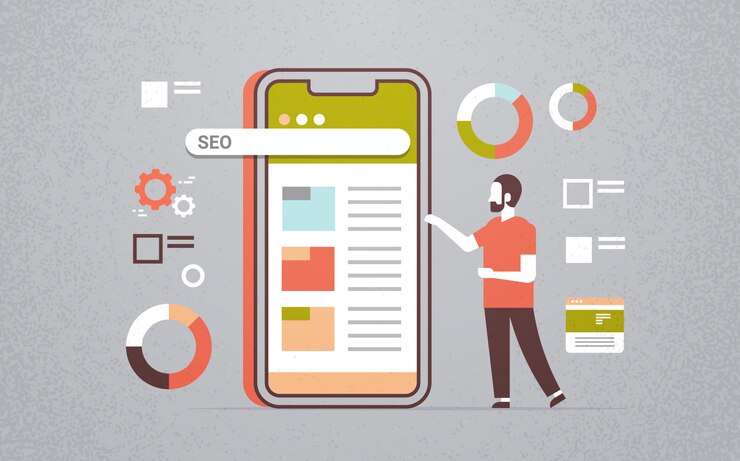
In our current digital era, a robust online presence is imperative for both individuals and businesses. Websites have emerged as the foundation of this virtual visibility, essentially acting as a gateway to the global audience. Nevertheless, with the ever-increasing usage of mobile devices, it is paramount to adjust and cater to the preferences of mobile users. An efficient approach to achieve this goal is by transforming your website into an Android application.
In this article, we'll explore the importance, definition, advantages, stages, and actionable insights connected with this transformative procedure. Read this blog the best web designers in Delhi -
Transforming a website into an Android app involves crafting a bespoke Android application mirroring your website's features and content. Diverging from adaptable mobile websites, apps provide a personalized and immersive user journey. They enable swift access to your content or services through a simple tap, bypassing the cumbersome web browser route. This seamless transition enhances user engagement and convenience, fostering a stronger connection between your brand and its audience.
The significance of converting your website into an Android app cannot be overstated, especially in a mobile-driven world. Here are some compelling reasons to consider this transformation:
Now that we understand the significance of converting a website into an Android app, let's delve deeper into the specific benefits it offers:
Apps are optimized for mobile devices, resulting in faster load times and smoother interactions. This can reduce bounce rates and increase user engagement.
Apps can send push notifications to users, keeping them informed about updates, promotions, or relevant content. This direct communication can drive user retention and engagement.
As mentioned earlier, apps can provide limited offline access to content, ensuring users can still interact with your app even without an internet connection.

Native apps can access device-specific features, such as the camera, GPS, and microphone, enabling innovative functionalities that are not possible on a website.
Apps often provide a more secure environment for user data, reducing the risk of data breaches compared to websites.
You can explore various monetization strategies for your app, such as in-app advertising, subscriptions, or one-time purchases, potentially generating additional revenue.
Having your app icon on a user's home screen reinforces your brand's presence and increases brand recognition.
Now that you're convinced of the benefits of converting your website into an Android app, here are some essential tips to ensure a successful transformation:
User-Centric Design - Prioritize user experience by designing an intuitive and user-friendly interface. Consider mobile design principles and keep the user at the center of your design decisions.
Optimize Performance - Focus on app performance to ensure quick loading times and smooth navigation. Compress images and minimize HTTP requests to reduce load times.
Responsive Design – Make sure that your app adapts seamlessly to various screen sizes and resolutions to provide a consistent user experience across different Android devices.
Offline Functionality - Implement offline functionality where possible, allowing users to access content or perform actions without an internet connection.
Push Notifications - Use push notifications wisely to engage users without overwhelming them. Tailor notifications to their preferences and behavior.
Prioritize data security and user privacy. Implement robust encryption and follow best practices for secure data handling.
Thoroughly test your app on different Android devices and versions to identify and fix any compatibility issues or bugs.
Invest in ASO to enhance the visibility on application stores. In order to enhance discoverability, it is important Optimize title, description, and keywords.
Promote your app through various marketing channels to attract and retain users. Leverage social media, email marketing, and online advertising.
Encourage user feedback and regularly update your app to address issues and add new features based on user input.
Don't hesitate—seize this opportunity to enhance your website's accessibility and engagement by converting it into an Android app. Transforming your website into an Android app represents a strategic manoeuvre to elevate user satisfaction, amplify your online presence, and nurture customer allegiance in our mobile-centric age, further added by the best web design institute in Delhi. By adhering to user-focused design principles, optimizing performance, and prioritizing security measures, you can craft a triumphant app that not only mirrors your website's content but also furnishes an enhanced and immersive experience. Welcoming this transition from website to app could be a pivotal step in realizing your online objectives and maintaining a competitive edge in the contemporary digital arena.
